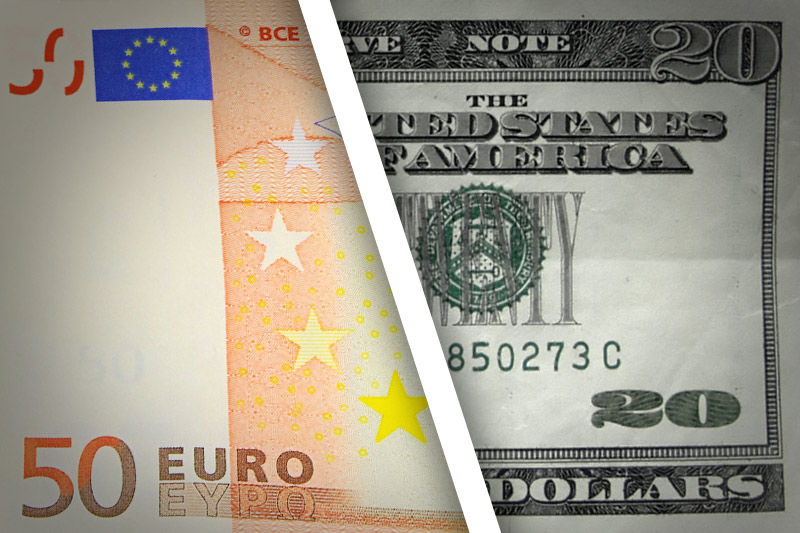Investing.com - The euro firmed against the dollar on Tuesday after data revealed European retail sales rose in March, surprising many who were expecting a decline, while soft trade data in the U.S. dampened demand for the greenback.
In U.S. trading, EUR/USD was up 0.41% at 1.3932, up from a session low of 1.3873 and off a high of 1.3951.
The pair was likely to find support at 1.3812, Friday's low, and resistance at 1.3966, the high from March 13.
In Europe, Eurostat, the European Union's statistical arm, reported that retail sales rose 0.3% in March, defying expectations for a 0.2% contraction. Retail sales in February were revised down to a 0.1% gain from a previously estimated 0.4% increase.
The numbers sparked for demand for the euro as did upbeat Spanish jobless numbers.
Official data released earlier revealed that the number of unemployed people in Spain dropped by 111,600 in April, compared to expectations for a decline of 49,100, after a 16,600 fall the previous month.
Separately, the Markit Economics research group said that Spain's services purchasing managers' index rose to a six-year high of 56.5 last month, from a reading of 54.0 in March. Analysts had expected the index to tick up to 54.4 in April.
Italy's services PMI swung back into expansion territory last month, rising to 51.1 from a reading of 49.5 in March, beating expectations for an uptick to 50.4.
The euro zone's service-sector PMI came in unchanged at 53.1, in line with expectations.
Meanwhile in the U.S., data revealed that the country's trade deficit narrowed to $40.38 billion in March from $41.87 billion in February, whose figure was revised from a previously estimated deficit of $42.30 billion. Analysts had expected the trade deficit to narrow to $40.30 billion in March, and the lackluster data softened the dollar.
The euro was down against the pound, with EUR/GBP down 0.27% to 0.8204, and down against the yen, with EUR/JPY down 0.15% at 141.51.
Sterling soared after Markit reported that the U.K. services PMI rose to a four-month high of 58.7 last month from 57.6 in March. Analysts had expected the index to remain unchanged in April.
The upbeat data added to expectations the Bank of England could raise borrowing costs ahead of other central banks.
